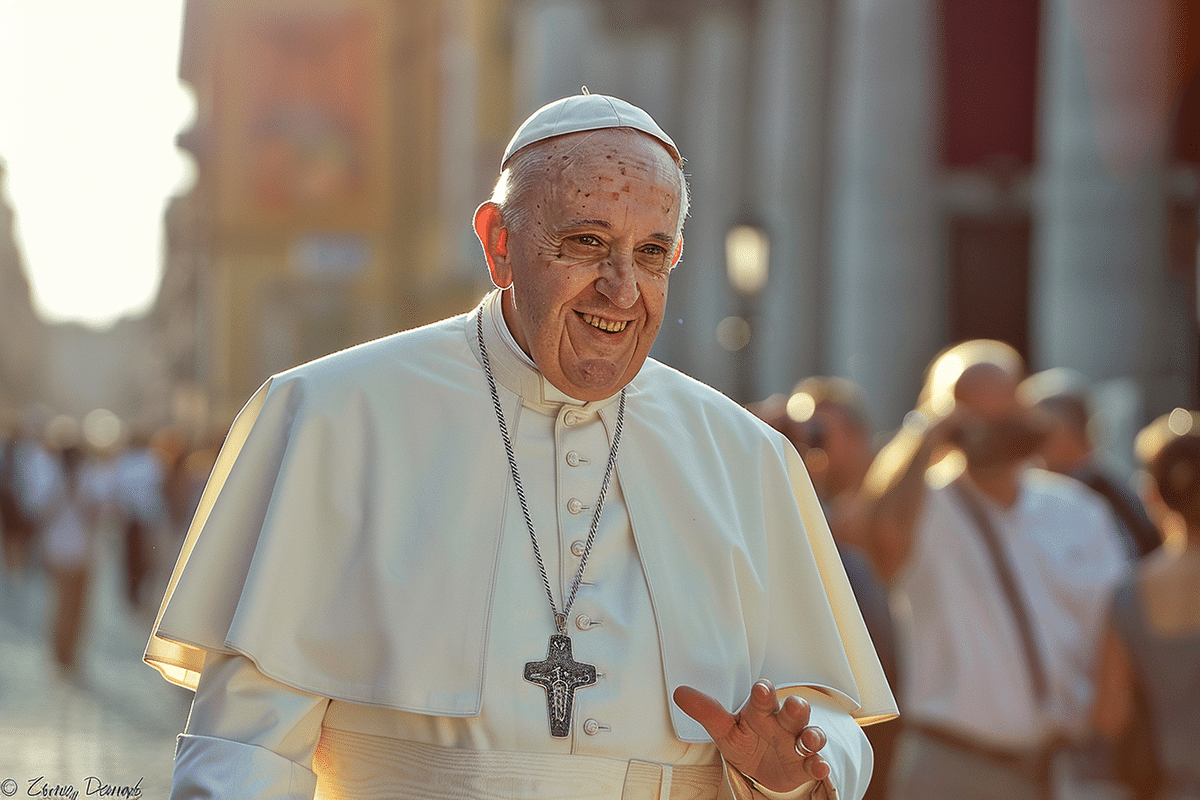Pope Francis, on his latest four-nation tour of Southeast Asia and Oceania, has called upon Indonesia to uphold its tradition of “harmony in diversity.” As part of his 11-day visit, the Pope emphasized the need for religious tolerance in a country known for its cultural and religious plurality but facing growing tensions in recent years. The trip, which began with a series of meetings in Jakarta, marked the first papal visit to Indonesia in 35 years.
During his stay, Pope Francis met with outgoing President Joko Widodo and President-elect Prabowo Subianto at the presidential palace. The meeting was celebrated with traditional fanfare, as cannons fired, and children dressed in vibrant Indonesian attire welcomed the Pope. Francis praised Indonesia for its rich diversity, likening the country’s 17,000 islands to the many different cultures that make up the nation. However, he cautioned that such diversity, while beautiful, could also lead to conflict if not carefully maintained.
This concern reflects Indonesia’s recent struggles with religious intolerance. While the country is home to the world’s largest Muslim population, it has also witnessed increasing episodes of discrimination against religious minorities. The Pope expressed the need for political leaders to actively safeguard unity amidst the variety of cultures and ideologies, warning that imbalances could easily disrupt this delicate harmony. He pointed out that both political and religious figures have a role to play in ensuring peace and tolerance.
Francis reiterated the Catholic Church’s commitment to fostering interreligious dialogue, seeing it as a key step toward overcoming shared global challenges like extremism. According to the Pope, religious intolerance, often fueled by extremism, continues to pose significant risks worldwide, including in Indonesia. He affirmed that religious leaders and institutions must work together to counter ideologies that seek to impose views through violence and deception.
The issue of intolerance in Indonesia has been highlighted by recent events, including the 2021 bombing of a Catholic cathedral on Sulawesi island, which injured 20 people during a Palm Sunday Mass. This attack underscored the need for greater vigilance and action to protect religious minorities in the country. Amnesty International reported that between January 2021 and July 2024, there were at least 123 incidents of religious intolerance in Indonesia, ranging from the closure of places of worship to physical assaults.
Pope Francis’ visit also touched upon broader regional issues. Indonesia has been vocal in its condemnation of the ongoing conflict between Israel and the militant Hamas group in Gaza. President Widodo expressed his gratitude for the Vatican’s continued support for Palestinian civilians affected by the violence. Both leaders emphasized the importance of working toward global peace and mutual respect among nations. Widodo reiterated that war brings only suffering and misery and called for greater acceptance of differences to realize a better, more peaceful world.
Despite his age and health challenges, the 87-year-old Pope maintained a busy schedule in Indonesia. He moved between events with enthusiasm, frequently using a wheelchair due to past surgeries and health concerns. Even so, Francis remained energetic, engaging with the crowds and clergy, and continuing to advocate for unity and fraternity across faiths. The Pope’s ability to maintain his usual humor throughout these engagements reflected his enduring commitment to his mission despite physical limitations.
His visit to Indonesia included meetings with the country’s Catholic clergy at Jakarta’s Our Lady of the Assumption Cathedral, where he encouraged priests and nuns to uphold the values of respect and fraternity. While Catholics make up only 3% of Indonesia’s population of 275 million, the country is home to the world’s largest Catholic seminary and remains an essential source of clergy for the global Catholic Church.
Francis’ tour through Southeast Asia is his longest and most physically challenging trip to date. It will see him travel over 32,800 kilometers, visiting Papua New Guinea, East Timor, and Singapore by its conclusion on September 13. Despite the physical demands, his message of unity, tolerance, and fraternity remains clear—a message that resonates not only in Indonesia but across the world.





